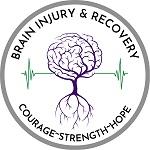Contact Us
HeatherLynn Bahme
BS (Retired U.S.Army)
Brain Injury & Recovery-TBI Program Manager
Office: 509-828-0449
Heather.bahme@dva.wa.gov
Brianna Flott
Brain Injury & Recovery-TBI Program Specialist
360-536-5268
brianna.flott@dva.wa.gov
Or
Email the Brain Injury & Recovery-TBI Program at: braininjuryrecovery@dva.wa.gov
VA Medical Centers:
Puget Sound VA Healthcare System
800-329-8387
Walla Walla
888-687-8863
Vancouver
800-949-1004
Spokane
800-325-7940
Statistics
FY 2024/2025
TBI Outreach Events- 77
Learning Events- 54 with 914 individual attendance/participation
Veterans Reached-901
Family Members Reached- 76
Veterans with TBI 1:1 – 172
Brain Injury & Recovery Program Claims Submitted- 6
Brain Injury & Recovery Program Claims Currently being worked- 11
Brain Injury & Recovery Program Claims and Benefits Generated- $74,736.22
The WDVA Brain Injury & Recovery-TBI Program supports and represents every veteran in Washington State who has incurred a Brain Injury or is experiencing symptoms of Brain Injury.
That means that we:
- Provide one on one support.
- Provide resources referrals.
- Support the groups and agencies that are out there doing great things for our veterans.
- Provide training and advice to any agency, group, summit, conference, etc. that wants to know more about how to help veterans living with Brain Injury or experiencing symptoms related to Brain Injury.
Why we do it:
Veterans experience brain injuries at a significantly higher rate than their civilian counterparts. These injuries often go undetected and underreported because they do not seem “severe” enough to warrant treatment. As a result, many veterans endure these invisible wounds without receiving the care they need. One notable example is the blast injury, which is considered the signature injury of OEF/OIF. It can cause brain damage with symptoms such as light sensitivity, migraines, emotional and memory difficulties, and increased risk of substance abuse, homelessness, and suicide. Unfortunately, many veterans are unaware that they have been injured from blast exposure.
Resources:
- VA - Make the Connection
- DSHS WA TBI Strategic Partnership Advisory Council
- http://comics.tbi.washington.edu/
- http://www.caregiver.va.gov/
- http://www.brainlinemilitary.org/
- http://www.publichealth.va.gov/exposures/traumatic-brain-injury.asp
- Brain Injury Alliance of Washington State
- WDVA Behavioral Health Provider List
- https://www.concussionalliance.org/veterans/
Brain Injury Awareness Month:
March is Brain Injury Awareness Month. It is a time to bring awareness, education, advocacy and a moment to bring attention to the challenges individuals with Brain Injury face. Our program is committed to bringing opportunities to do just that.
Washington State has recognized March as Brain Injury Awareness month through a Proclamation:

WDVA Highlights the importance of the month


